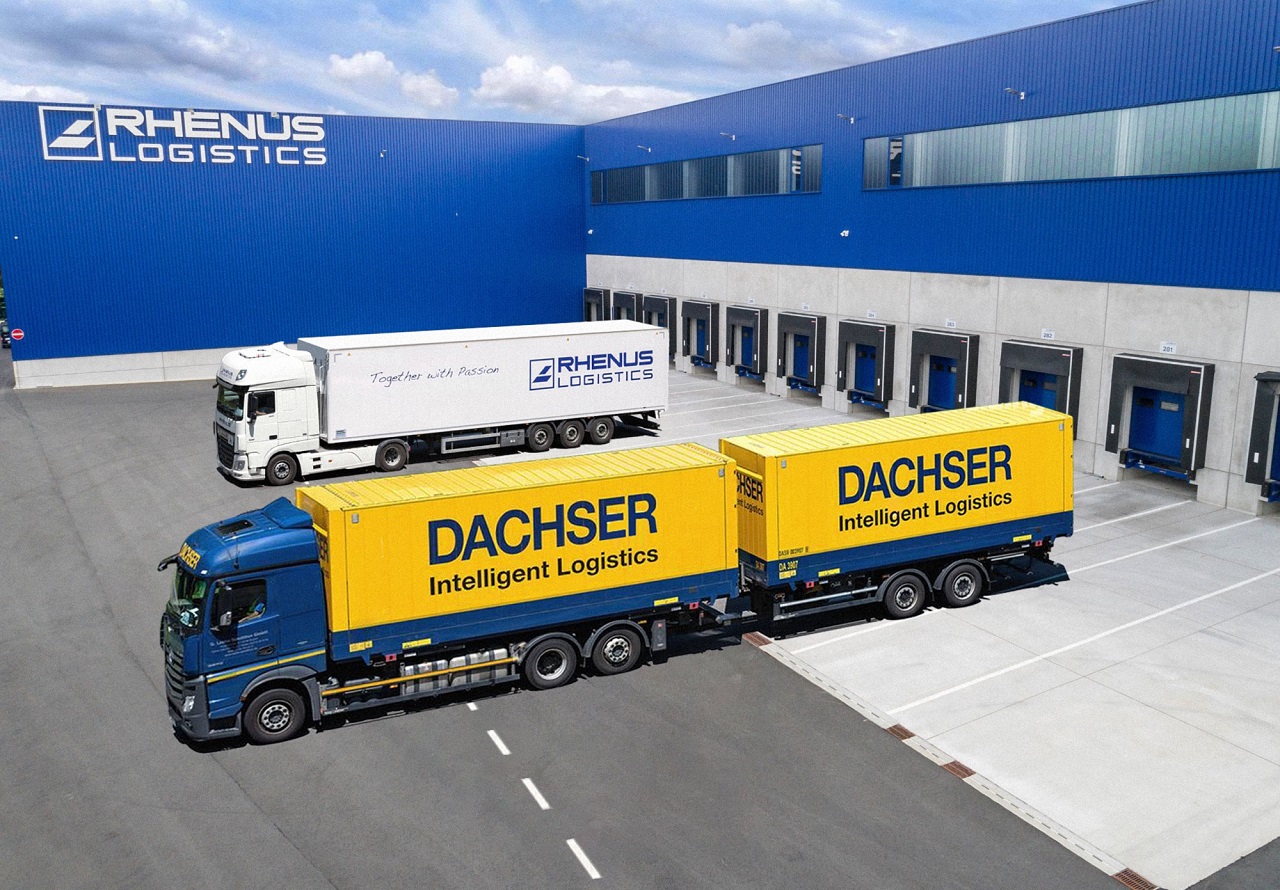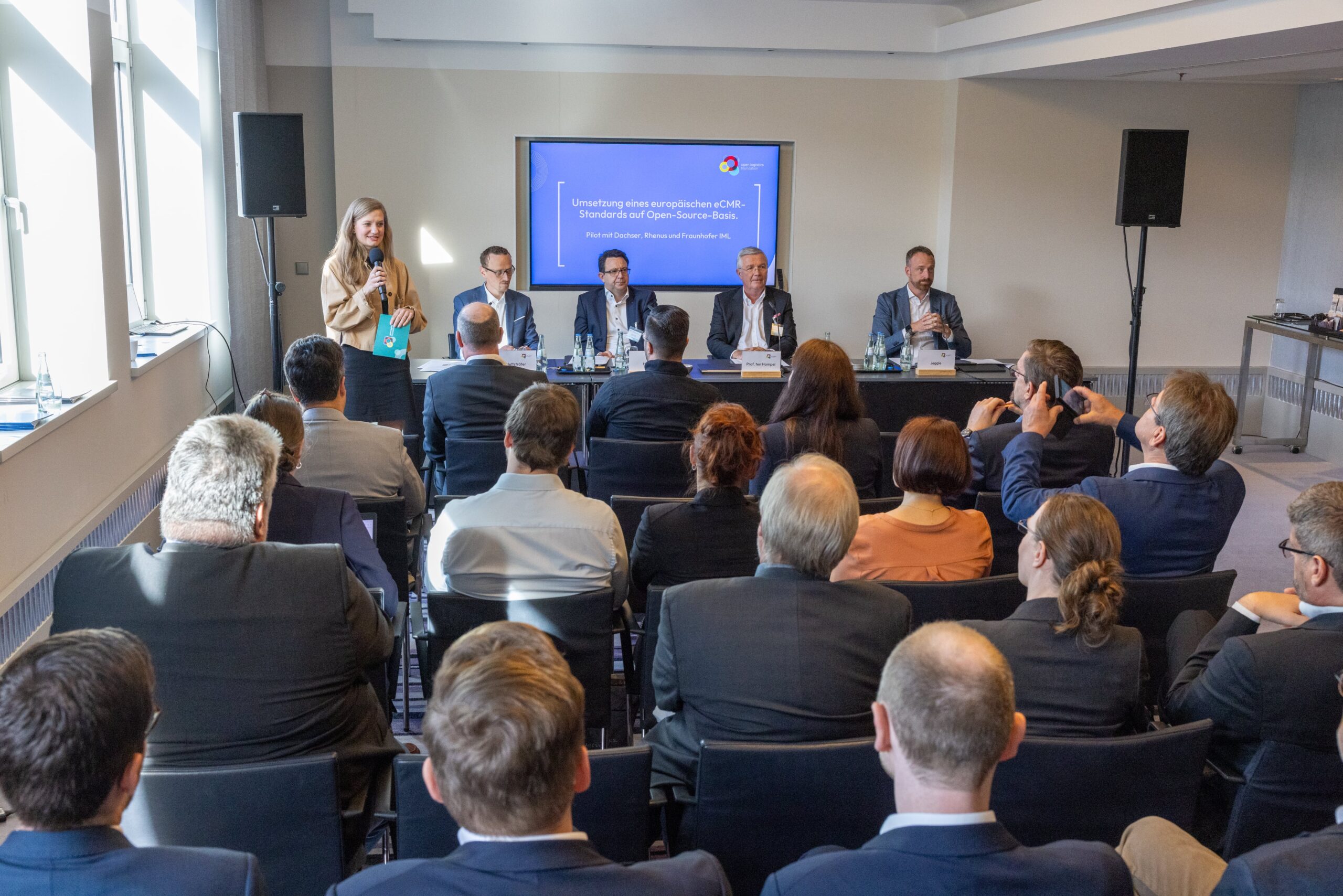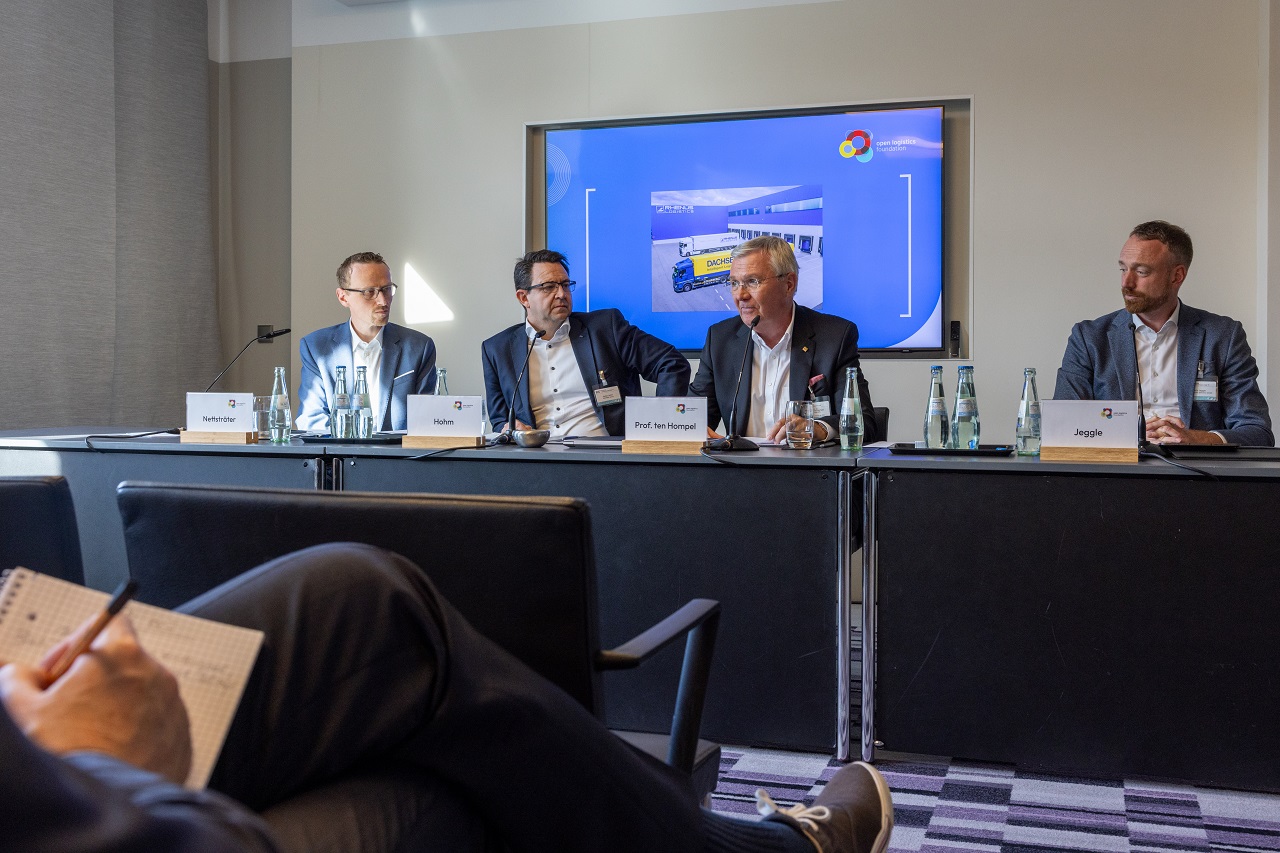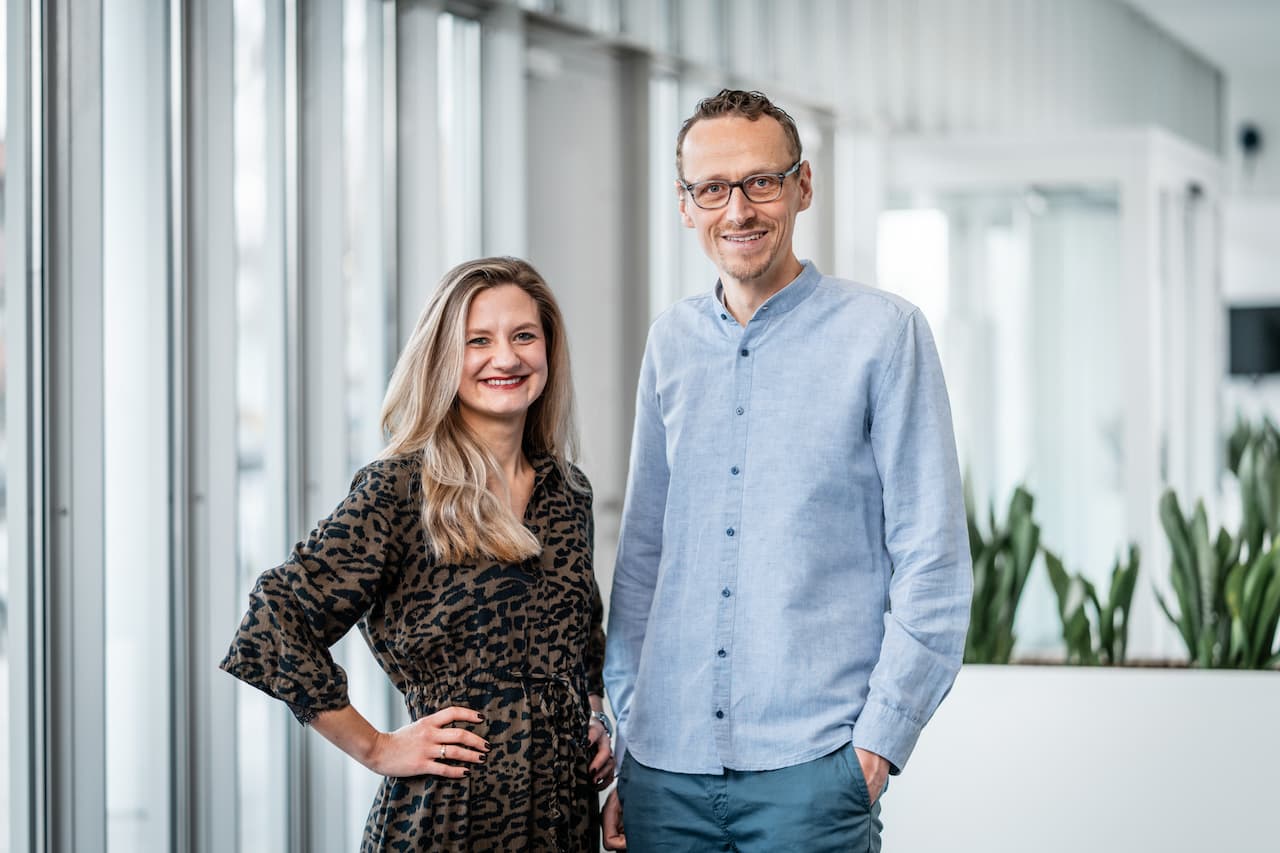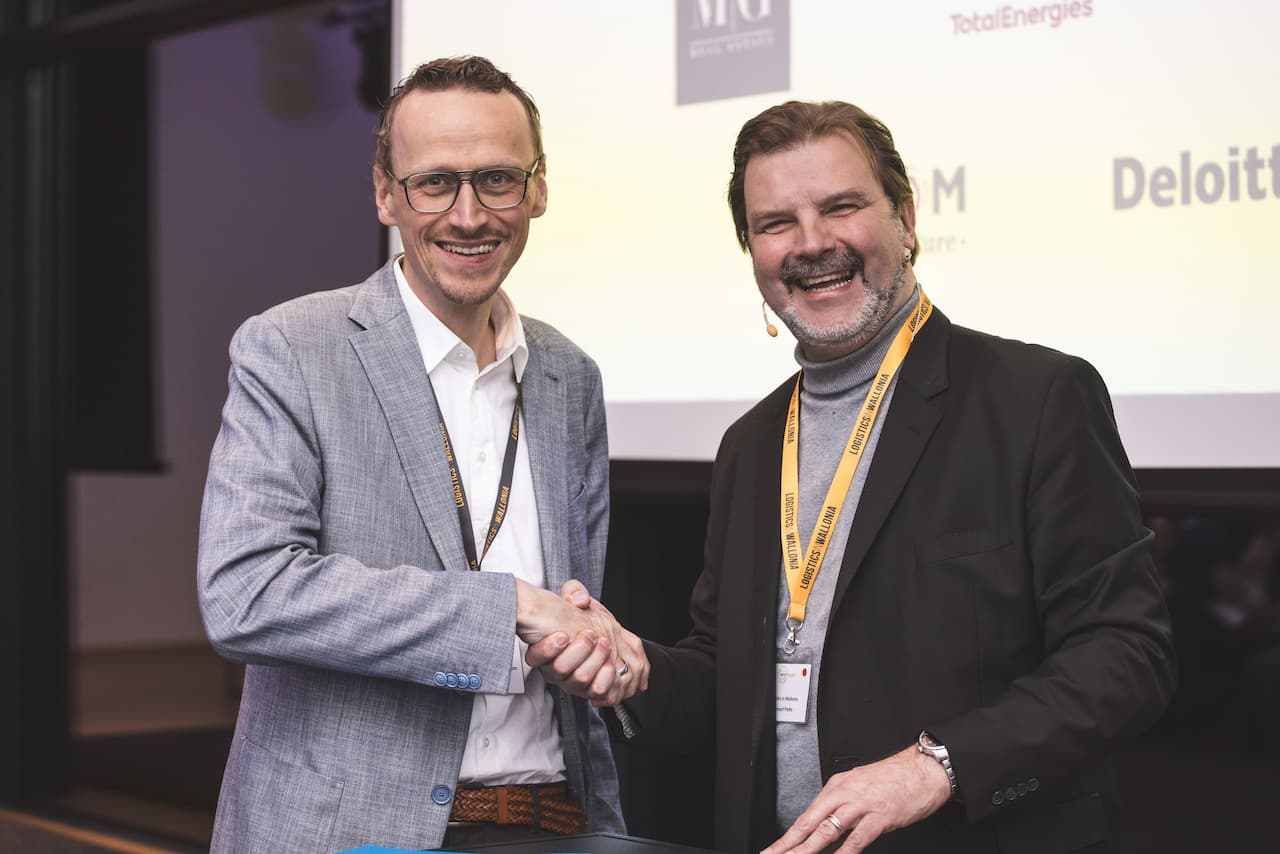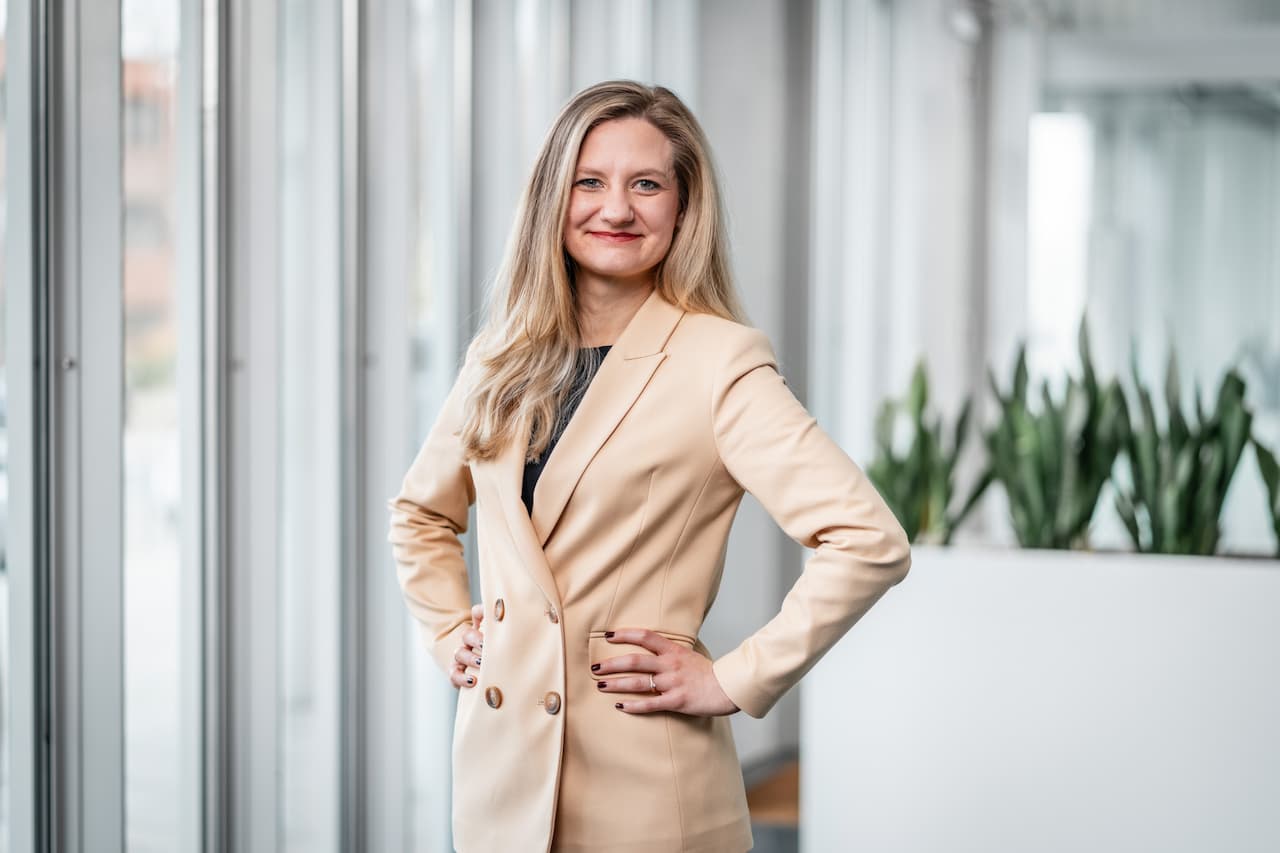“If competitors like Rhenus and Dachser interact via the same open source platform using eCMR, this standard will definitely find industry-wide acceptance,” explained Prof. Dr. Dr. h. c. Michael ten Hompel at the press conference. Both logistics service providers had tested the new eCMR platform on a real transport route from Berlin and processed the documents automatically. The Chairman of the Board of Trustees of the Open Logistics Foundation and Managing Director of the Fraunhofer IML spoke on behalf of the community – together with Stefan Hohm, Deputy Chairman of the Board of Directors of the Open Logistics Foundation and, as Chief Development Officer, a Member of the Board at Dachser, Boris Jeggle, representative of the Rhenus Group on the Logistical Steering Committee of the Open Logistics Foundation and Managing Director of Rhenus Special Delivery, Andreas Nettsträter, CEO of the Open Logistics Foundation and the eCMR Working Group Leader Ingo Müller, Department Head Prototyping & Testing at Dachser.
“What began in 2020 at Fraunhofer IML with the ‘Silicon Economy’ project funded by the German Federal Ministry of Transport is now being put into practice by the Open Logistics Foundation as a community project,” Prof. ten Hompel is pleased to say. This community idea of open and fair cooperation between different companies, which can also be competitors in the free market, is the basis of the Foundation, based in Dortmund. Since 2021, it has been building a European open source community – with the goal of advancing digitalisation in logistics and supply chain management on the basis of open source and standardising logistics processes for everyone through de-facto standards and practicable open source software.
Community in focus: “Digitalisation of logistics and supply chains only works across companies”
“A technology initiative like the Open Logistics Foundation is something special in logistics to date,” says Boris Jeggle from Rhenus. “The community thrives on the expertise of everyone. With our partnership-based eCMR standard, we have shown that connectivity, compatibility and interoperability of IT systems in logistics can go beyond the boundaries of our own company. The digitalisation of logistics and supply chains only works across companies. Interface problems must be overcome and solutions for this should be freely available to all via open source”.
Stefan Hohm from Dachser clarifies: “It is not only logistics service providers and IT, forwarding or shipping companies that embody the community idea – market-leading eCMR platform providers also participate in the Working Group. The motto is: industry-wide accepted standards for basic applications instead of isolated solutions and the constant repetition of programming routines. The Working Group produces more than user recommendations. It actively delivers programming lines for a common open source standard and also demonstrates a real application scenario for the operation of a blockchain in logistics. With great success!”
Milestone for the Open Logistics Foundation
“The German Logistics Congress 2023 forms a milestone for the Open Logistics Foundation,” sums up Andreas Nettsträter, CEO of the Open Logistics Foundation. “After communicating the launch of our Foundation at the congress in 2021 and promoting more cooperation in the industry in 2022, we can say in 2023 that our idea worked. Direct market competitors have sat down at the table and are developing commodity-level open source solutions that are openly available to all – i.e. also non-members – via our repository. And the eCMR is the best example of this. It is precisely this community approach that is important for the broad acceptance of new technologies in the logistics industry.”
Participants of the Working Group
Aventeon, CargoLedger, Dachser, DB Schenker, DSLV, duisport, Fraunhofer IML, GS1 Germany, markant, Pionira NV, Rhenus, TradeLink, TransFollow, Veroo.

